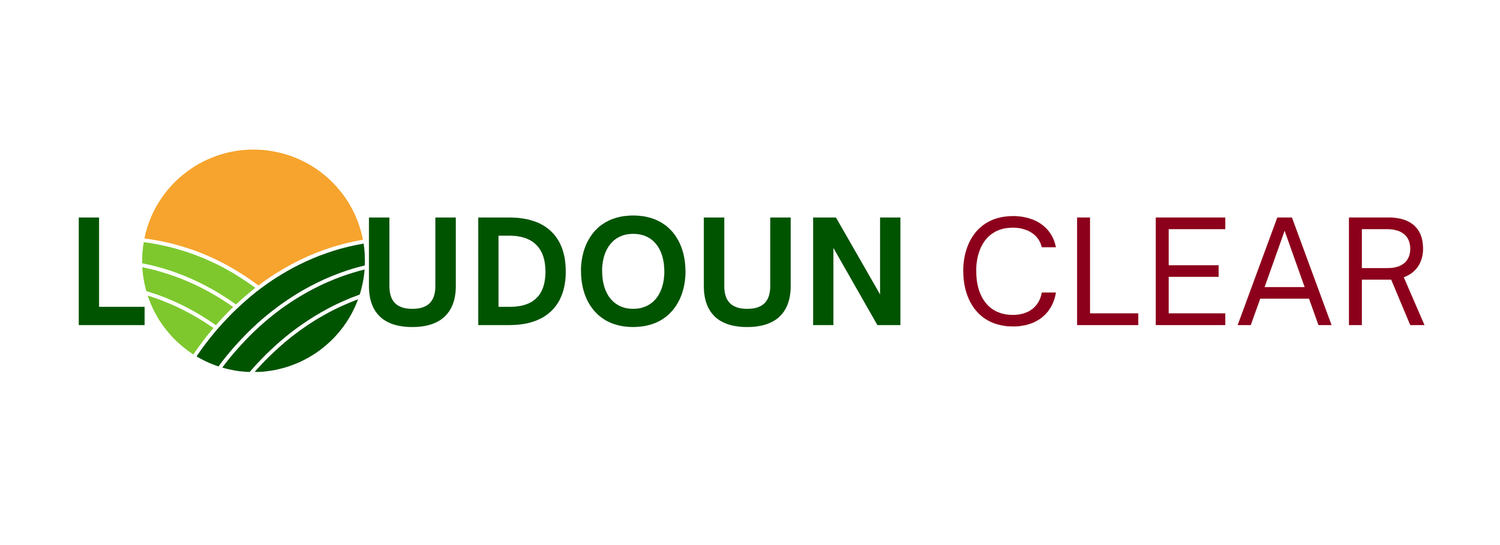Listen to Loudoun farmers.
Led by the Loudoun County Farm Bureau, Loudoun Clear is a countywide effort encouraging residents to take part in a zoning process that will shape the future of everyone who lives here. Listening to your farmers is more important now than ever.

What is the Western Loudoun ZOAM?
The Western Loudoun Rural Uses and Standards Zoning Ordinance Amendment (ZOAM) is part of Loudoun County’s effort to refine regulations that govern rural areas in western Loudoun. Approved by the Board of Supervisors in September 2024, the project aims to address concerns raised during the Zoning Ordinance Rewrite process, ensuring that zoning rules align with the area’s unique needs and the Comprehensive Plan.
The ZOAM focuses on updating standards for agricultural practices, rural businesses, conservation efforts, and other community priorities. Its companion Comprehensive Plan Amendment will align zoning and planning policies for the region.
Stakeholders representing agriculture, conservation, business, tourism, and residents are participating in discussions to offer diverse perspectives. Work sessions, led by the Board’s Transportation and Land Use Committee and other representatives, will focus on rural topics such as agricultural processing, farm breweries, signage, food services, and conservation easements.
Following community input and stakeholder meetings, planning staff will draft ordinance language for review by the Zoning Ordinance Committee. Public hearings with the Planning Commission and Board of Supervisors are anticipated before final adoption in early 2027.
The 2025 Western Loudoun ZOAM process will determine the future of farming and land use in Loudoun County. Outdated policies, restrictive definitions, and overregulation threaten the sustainability of our farms and the broader agricultural community.
Why the ZOAM Matters
Farming touches every part of Loudoun’s identity and economy.
Local Food Supply: Loudoun’s farms provide fresh, high-quality produce, meats, and dairy products for local markets.
Rural Beauty: Farmland preserves the scenic landscapes that define Loudoun County and prevent overdevelopment.
Jobs and Economic Growth: Agriculture supports thousands of jobs and generates millions in local revenue.
Environmental Stewardship: Farms protect natural resources, conserve soil and water, and combat urban sprawl.
Key Issues for Farmers
Restrictive Definitions of Farming: Current zoning policies exclude many modern practices, limiting innovation.
Barriers to Agricultural Processing: Rules requiring on-site processing make it difficult for farmers operating across multiple parcels.
Inadequate Housing Policies: Affordable farmworker housing remains a critical unmet need.
The ZOAM process will set the stage for how farming, agritourism, and rural land use are governed in the years ahead. These policies will directly affect Loudoun County’s ability to balance growth with agricultural preservation.

ZOAM Focus Areas
The Western Loudoun ZOAM will update standards for agricultural practices, rural businesses, conservation efforts, and other community priorities. Its companion Comprehensive Plan Amendment will align zoning and planning policies for the region. Here’s how, for various farming communities.
-
The ZOAM process should create standalone zoning standards for equine and livery operations, recognizing them as independent farms rather than agricultural support uses. Current policies impose unnecessary regulations, and updated standards must better reflect the importance of Loudoun’s equestrian industry
-
The ZOAM’s restrictive definitions for agricultural processing, including requiring 51% of inputs to be on-site, create barriers for Loudoun farmers who operate across multiple parcels. The Bureau supports revising these rules to better support local grain, produce, and livestock processing.
-
The ZOAM does not address the need for affordable farmworker or caretaker housing, which is critical for year-round agricultural operations. Zoning changes must include provisions to support housing for workers in Agricultural Rural 1 (AR1) and Agricultural Rural 2 (AR2) zones. AR1 and AR2 are zoning designations that regulate land use in Loudoun County’s rural areas, primarily aimed at preserving agricultural and open-space resources.
-
The ZOAM must prioritize conservation by protecting prime soils, mountainsides, and water resources, as outlined in the Comprehensive Plan. Addressing these issues is essential to balancing agricultural preservation with sustainable development.
-
The ZOAM’s redefinition of agritourism under “cultural tourism” overlooks practical aspects like events and the use of Loudoun-grown ingredients. Zoning updates should support tourism that aligns with local farming while balancing rural preservation.

Farming in Loudoun County
Top Honey Producer
Loudoun is Virginia's top producer of honey. Through sustainable practices, our dedicated beekeepers preserve pollinator health while delivering the state's finest golden harvest.
Agricultural Diversity Hub
We are home to rich agricultural diversity — No. 1 in Virginia for farms led by veterans, Asian producers and Hispanic and Latino farmers. The county is also second in the state for women-run farms and first for new or beginning farmers.
Equine Leader
We lead Virginia with the highest number of equine farms and horses. This thriving equestrian community supports local agriculture, tourism and a deep connection to the county’s rural heritage.
Commonwealth Wine Country
A recent study showed that wineries alone drive 30% of trips to our county. What’s more, Loudoun County's winery and scenic offerings were rated higher than many other national wine regions in the comparative study.
Blooming to No. 1
Virginia’s leading flower producers call Loudoun home; cut flower sales nurture vibrant farms that bring color and vitality to the region. Blooms also help strengthen the local agricultural landscape.
Big on Farmland
More than 1,300 farms call Loudoun home, covering area 4x larger than Walt Disney World. And did you know we’re No. 2 in Virginia for both cut Christmas trees and Alpaca farms?
